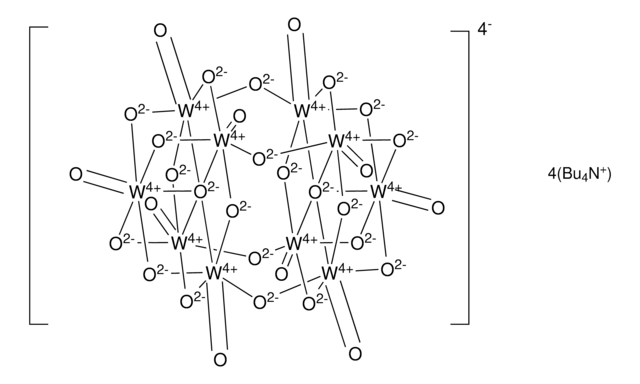All Photos(1)
About This Item
Linear Formula:
CH3(CH2)5CO(CH2)5CH3
CAS Number:
Molecular Weight:
198.34
EC Number:
MDL number:
UNSPSC Code:
12352100
PubChem Substance ID:
NACRES:
NA.22
Recommended Products
Quality Level
Assay
97%
form
solid
bp
264 °C (lit.)
mp
30-32.5 °C (lit.)
density
0.825 g/mL at 25 °C (lit.)
SMILES string
CCCCCCC(=O)CCCCCC
InChI
1S/C13H26O/c1-3-5-7-9-11-13(14)12-10-8-6-4-2/h3-12H2,1-2H3
InChI key
ULIAPOFMBCCSPE-UHFFFAOYSA-N
Storage Class Code
11 - Combustible Solids
WGK
WGK 3
Flash Point(F)
Not applicable
Flash Point(C)
Not applicable
Personal Protective Equipment
dust mask type N95 (US), Eyeshields, Gloves
Choose from one of the most recent versions:
Already Own This Product?
Find documentation for the products that you have recently purchased in the Document Library.
Customers Also Viewed
Ming Wang et al.
Chemistry, an Asian journal (2018-05-10)
The large polydispersity index of functional pendant polymers has hindered their application in semiconductors. Herein, a novel pendant polymer with perylenediimide (PDI) in the side chains was successfully synthesized through ring-opening metathesis polymerization (ROMP) with a very low polydispersity index.
Cristina Romero-Diaz et al.
Scientific reports, 10(1), 4303-4303 (2020-03-11)
Single substances within complex vertebrate chemical signals could be physiologically or behaviourally active. However, the vast diversity in chemical structure, physical properties and molecular size of semiochemicals makes identifying pheromonally active compounds no easy task. Here, we identified two volatile
Stephanie M Campos et al.
Behavioral ecology : official journal of the International Society for Behavioral Ecology, 31(4), 978-991 (2020-08-09)
Animal signals evolve by striking a balance between the need to convey information through particular habitats and the limitations of what types of signals can most easily be produced and perceived. Here, we present new results from field measures of
Our team of scientists has experience in all areas of research including Life Science, Material Science, Chemical Synthesis, Chromatography, Analytical and many others.
Contact Technical Service











